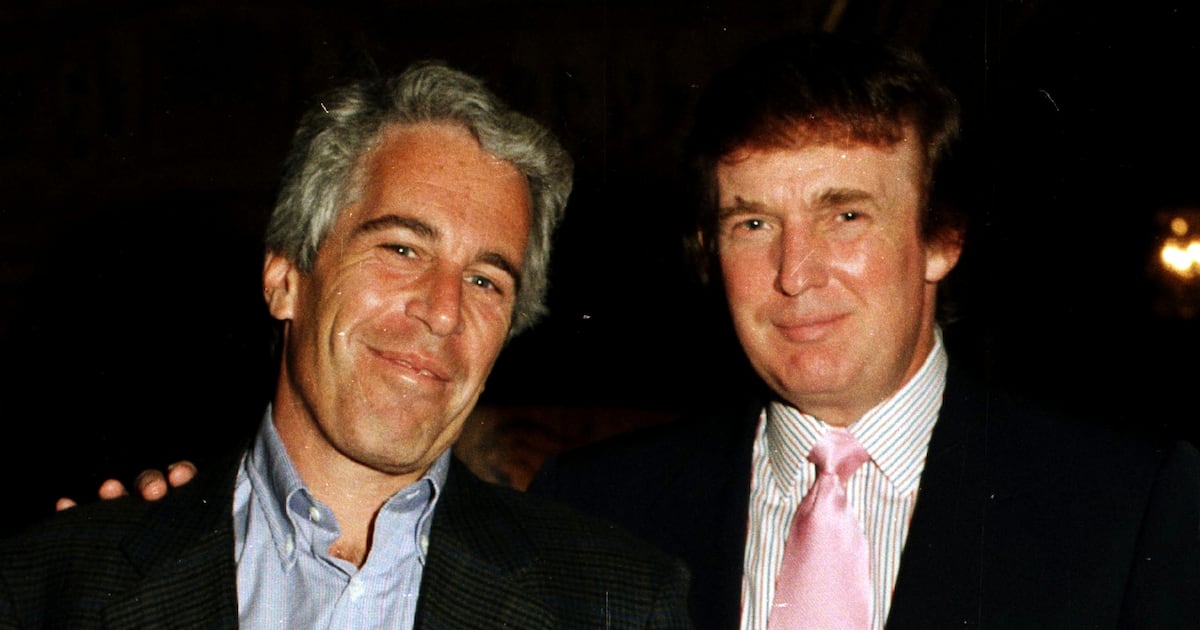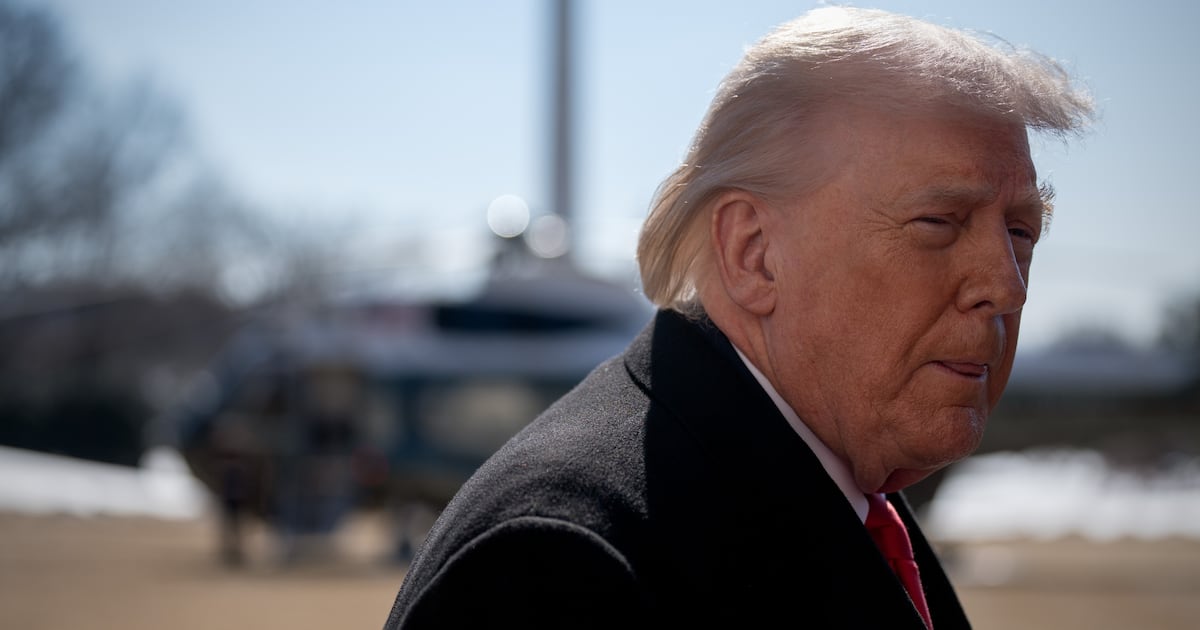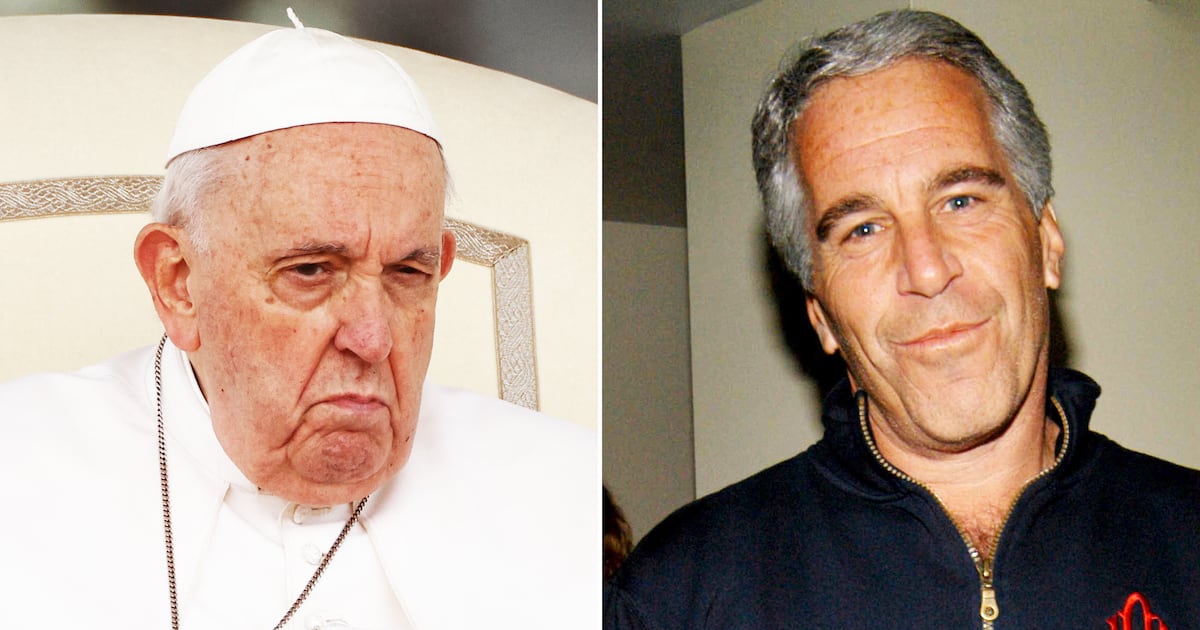Chuck Todd claims he’s nervous.
“You’re just adding to my anxiety,” he complains when I tell him that since the premiere of NBC’s Meet the Press in November 1947, there have been fewer changes in the moderator’s chair—the perch he’ll occupy starting this Sunday—than inside the Oval Office (12 presidents compared with 11 MTP moderators, Todd included). “So basically you’re saying that if I can’t survive a term or two, I’m in trouble.”
For someone who just landed his dream job—the same Inside-the-Beltway throne from which the late Tim Russert, his NBC News mentor, reigned supreme for nearly 16 years—the goatee-wearing Todd is doing a fair impression of angst, though somehow it’s reminiscent of Br’er Rabbit’s briar patch phobia.
“I have not gotten a lot of sleep for the last three weeks,” Todd confides from NBC’s Washington bureau. “It’s driving my wife [political and corporate communications consultant Kristian Denny Todd] crazy, but I think I wake up every two hours with something I’m worried about or an idea that I have. Part of me is thinking it’s such a cool honor that even if I totally fall on my face, they can’t take away the honor that I got to do it.”
It’s unlikely that Todd—who, at 42, gave up the White House beat and his own MSNBC politics show, The Daily Rundown, to accept the new gig, but remains NBC’s political director—could fall very far.
It’s difficult to nose-dive out of a basement.
While MTP still makes news and gets some 2.4 million viewers, the audience is much-reduced from the glory days of Russert, and the iconic Sunday public-affairs program is a battered franchise in need of repair.
Todd—a history buff and political junkie who steeped himself in policy and substance as NBC’s chief White House correspondent for the past 5 1/2 years—seems ready for the challenge. He’s looking fitter than ever on camera, and has slimmed down in the past year—and managed to reduce his chronic bouts with kidney stones—by jogging for 20 minutes every morning on his treadmill at home in Arlington, Virginia.
For his inaugural show, Todd will be grilling President Obama at the White House—a potentially headline-making interview to be videotaped Saturday after Obama’s return from the NATO summit in Wales. What’s more, Todd will be joined live in the studio by MSNBC Morning Joe host and former Republican Congressman Joe Scarborough in his new added role as a regular MTP contributor and NBC News senior political analyst.
“Why wouldn’t I want to have Joe contributing to Meet the Press? Joe’s got one of the great political platforms on television and he’s got a unique perspective to offer,” says Todd, who occasionally has clashed with Scarborough on the air and once, in an embarrassing gaffe, was caught on camera flipping the bird at an offstage colleague while waiting to join the Morning Joe panel. “Joe and I are pretty passionate people.”
While declining to confirm that NBC News congressional beat reporter Luke Russert, Tim’s 29-year-old son, will also be a regular on MTP, Todd says viewers shouldn’t be surprised to see both Russert and congressional correspondent Kelly O’Donnell, among other journalists, on the program’s roundtable.
“My goal is I want informed commentary,” he says. “I want reporter-driven commentary, reporter-driven analysis. I want the views of the person on the beat, who covers it every day, so that person’s view is grounded in something.”
What Todd most definitely doesn’t want, he says, “is somebody who just read The New York Times Op-Ed page or The Wall Street Journal Op-Ed page, and they have an opinion, too. We slip into that too much.” Pointedly, he adds: “There are other shows that do that well, and they should continue to do that. But I think Meet the Press has a different mandate.”
Beyond the construction of a new set—television’s initial reflexive solution to nearly every problem—Todd must also figure out ways to engage and attract viewers, not only economic and political elites in the “Acela Corridor,” where the economy has been recovering robustly from the Great Recession of six years ago, but also the folks “between the Fives,” as Todd puts it.
He’s borrowing a campaign consultant-friend’s term for the Americans who live in the middle of the country, between Interstate 95 on the East Coast and I-5 on the West Coast, where economic revival has been slow in coming—people who are understandably frustrated by the Washington political-media establishment’s inattention to their continuing struggles.
“I think there is this perception that the American public has about Washington right now—and they’ve thrown all of us in the media with it—that we’re out of touch,” Todd says. “We don’t understand what’s going on. We’re all caught up in the process of the Acela Corridor. Being in Washington, we’re not experiencing what the folks ‘between the Fives’ are experiencing. We got caught up in that Washington-New York mind-set.”
Todd, who grew up in Miami, personally pleads not guilty to the charge of out-of-touch elitism—and hopes to prove it on MTP, especially with reported packages after the top-of-the-show newsmaker segment, featuring Todd traveling to Kansas and other such places to find worthy stories that are otherwise ignored by the Beltway media. “I’ve got my own kitchen cabinet of relatives who’ve had to live through some of the hard realities of this recession,” he says, “whether it’s in the Panhandle of Florida or in the mountains of Arkansas—my own personal family experience. The recovery still hasn’t taken place there, it’s just stopped being bad. The foreclosure signs are gone. But that doesn’t mean people feel truly able to climb the economic ladder.”
Speaking of his plans for MTP, Todd continues, “If you ask, ‘How are you going to restore this program?’, I think it’s about restoring the credibility of political journalism with the middle of country, proving to them that we ‘get it.’ We know what’s going on. And we’re translating America’s anxiety and talking about the issues they care about when we’re talking to [public officials] and asking the questions that they want asked—and not just the cute questions we think we’ve come up with.”
Todd is lucky in one respect: He won’t have to worry about matching his predecessor’s record of ratings success. Under former White House correspondent David Gregory—who took over six months after Russert’s shocking June 2008 death of a massive heart attack—MTP plummeted from an untouchable first place, regularly beating the competition by an unheard-of 40 percent, to sometimes a feeble third. These days it rates well behind ABC’s This Week With George Stephanopoulos and CBS’s Face the Nation (hosted by Bob Schieffer), but ahead of Fox News Sunday with Chris Wallace (which last month, however, did beat MTP in the Washington, D.C., media market).
“Some of it is cyclical,” Todd argued, “and it’s not just about one show. I think I’ve noticed that in general the audience on Sunday has been collectively shrinking.”
Last month the 43-year-old Gregory, who was left twisting in the wind by NBC News’ management amid continued ratings erosion and a drumbeat of embarrassing media stories predicting his demise, abruptly left the network with a reported $4 million golden parachute—to write a book on his spiritual journey in Judaism, his publisher Simon & Schuster announced.
“I don’t know the full story so I can’t really speak to it,” Todd said, dodging as artfully as any evasive politician when I ask what he thought of the publicly painful manner of his predecessor’s leave-taking. “Every day, I’m still getting used to being in the spotlight myself. This is a tough business, and all of us that are in it know it’s a tough business.”






